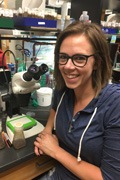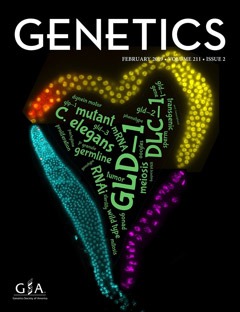2019 Election: Biographical Sketches
DIRECTORS
Vote for one in each section
To cast your vote, you will need the voter code provided in the ballot email sent from society@genetics-gsa.org to the email address associated with your GSA Membership.
Current Board
GSA strives to serve the entire breadth and diversity of our community, so please consider the overall composition of the Board as you cast your vote for one candidate in each section of the ballot. Current members of the Board of Directors are listed below.
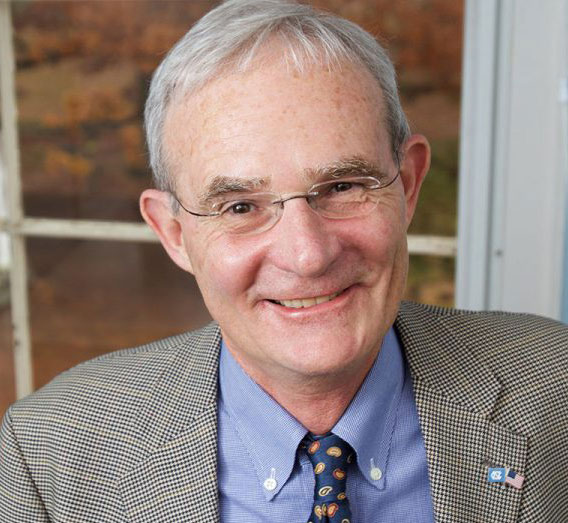
Terry R. Magnuson, PhD
2020, President
UNC School of Medicine
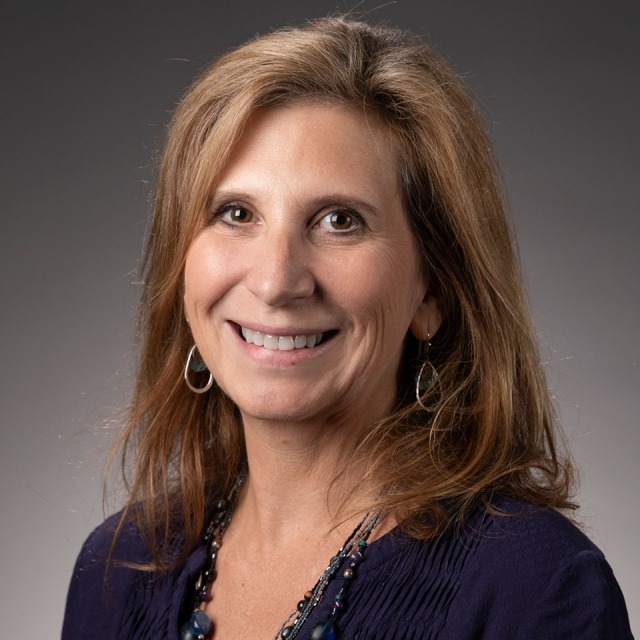
Denise J. Montell, PhD
2021, Vice-President
University of California Santa Barbara
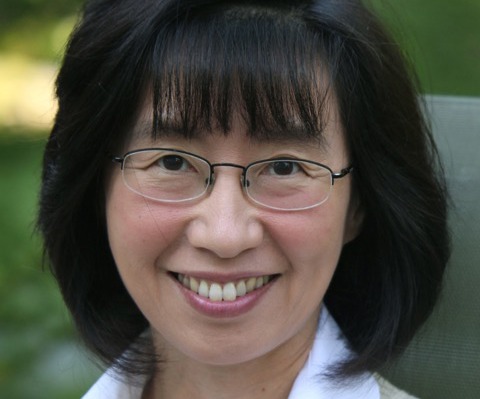
Jeannie T. Lee, MD/PhD
2019, Immediate Past President
Howard Hughes Medical Institute
Harvard Medical School
Massachusetts General Hospital
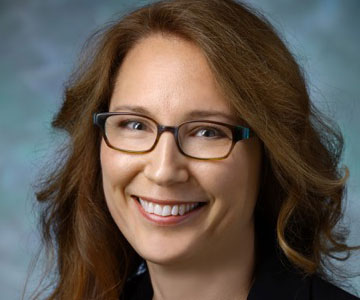
Erika L. Matunis, PhD
2021, Secretary
Johns Hopkins School of Medicine
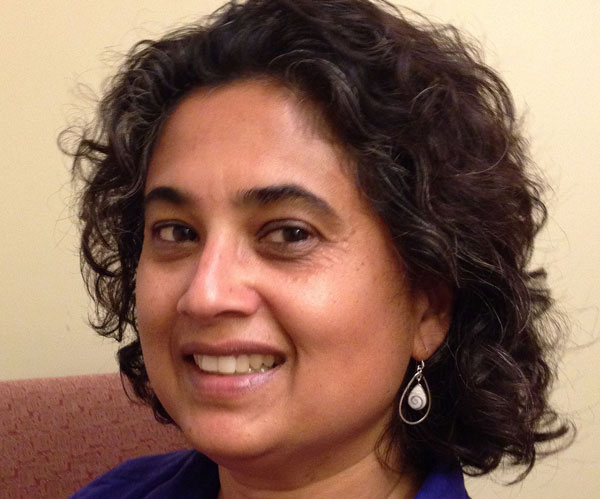
Piali Sengupta, PhD
2019, Treasurer
Brandeis University
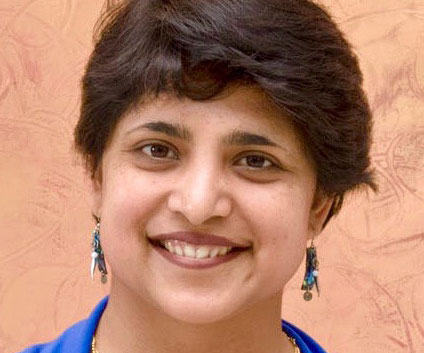
Swathi Arur, PhD
2021
The University of Texas
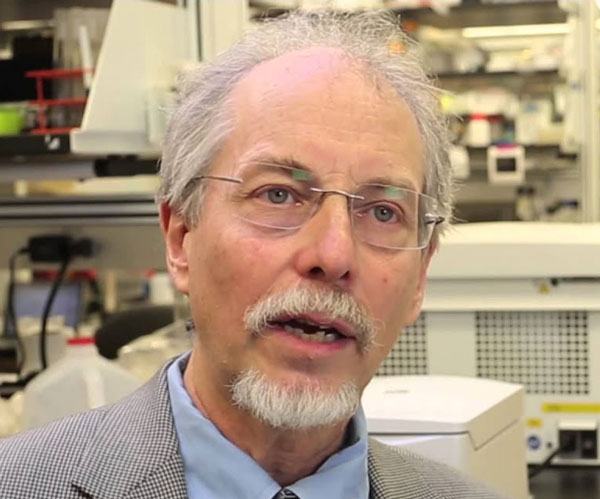
Jef D. Boeke, PhD, SCD
2019
NYU Langone Medical Center (NYULMC)
Institute for Systems Genetics, NYULMC
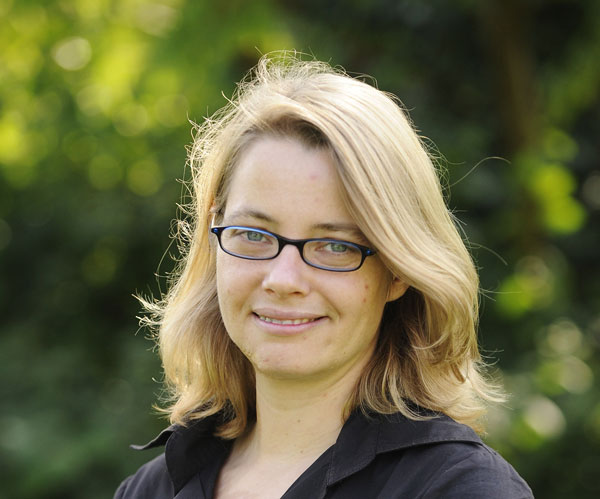
Kirsten Bomblies, PhD
2020
John Innes Centre
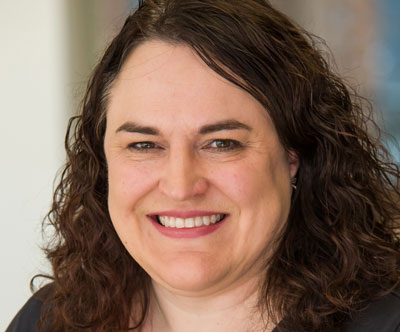
Rebecca Burdine, PhD
2021
Princeton University
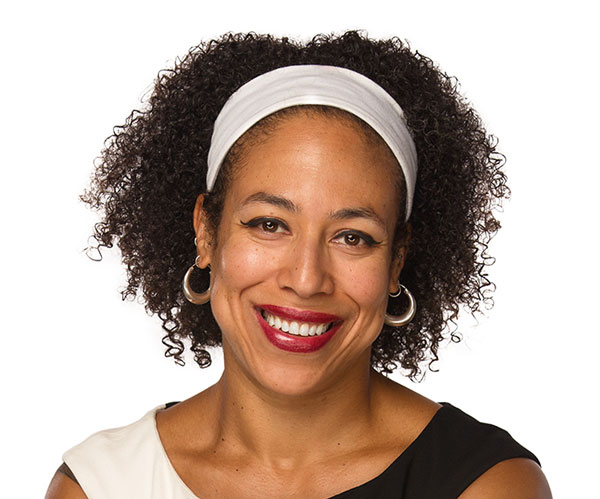
Cassandra Extavour, PhD
2020
Harvard University
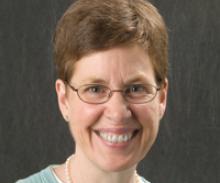
Pamela K. Geyer, PhD
2021
University of Iowa
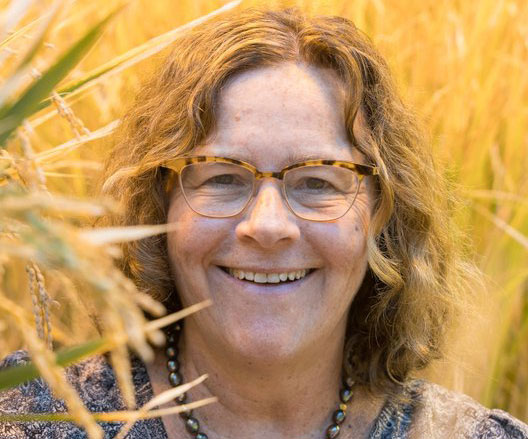
Mary Lou Guerinot, PhD
2019
Dartmouth College
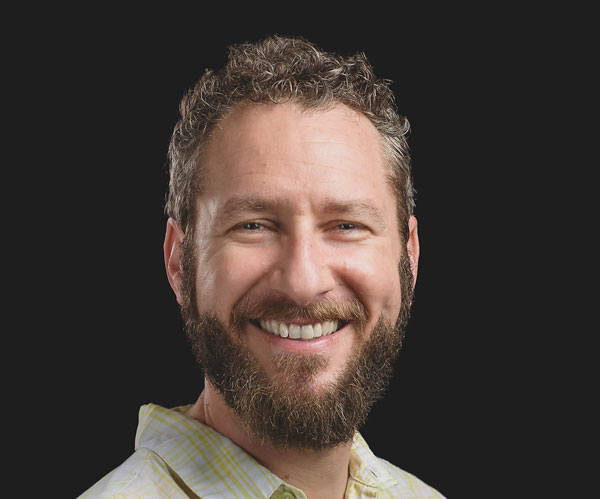
Matthew W. Hahn, PhD
2020
Indiana University
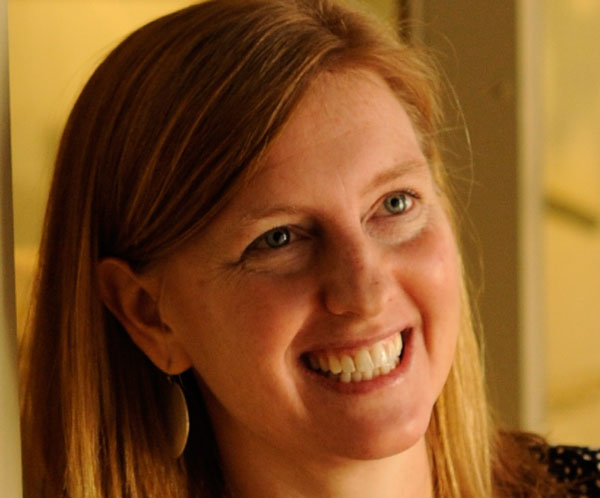
Hopi Elisabeth Hoekstra, PhD
2019
Howard Hughes Medical Institute
Harvard University
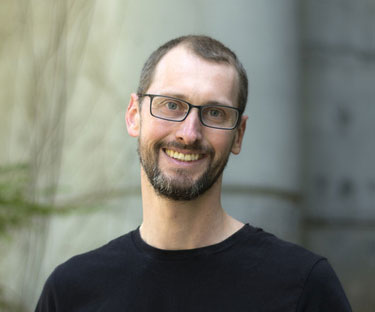
Jordan D. Ward, PhD
2021, Early Career Director
University of California Santa Cruz
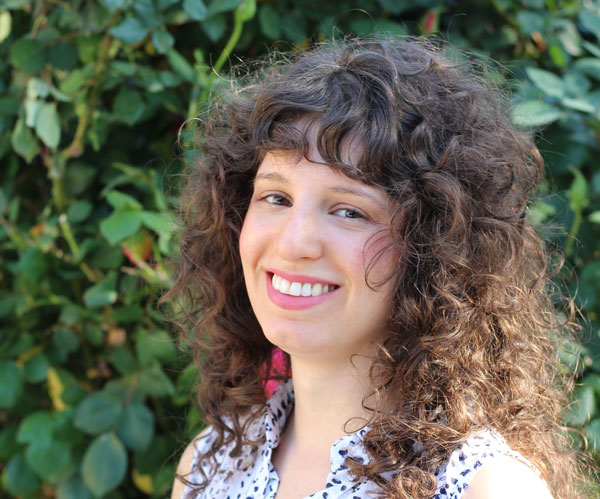
Didem P. Sarikaya, PhD
2019, Trainee Advisory Representative
University of California Davis
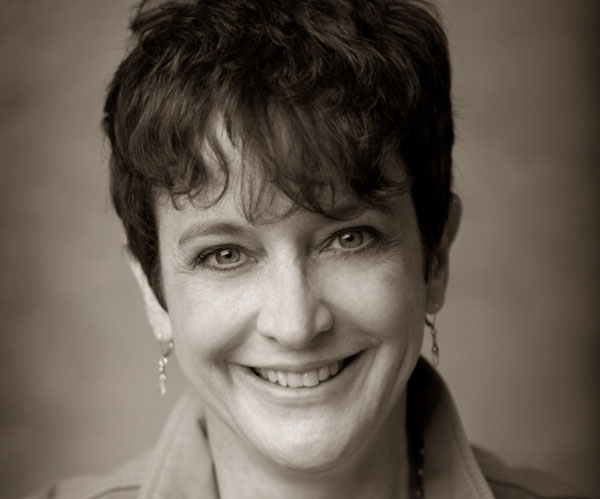
Brenda J. Andrews, PhD
2020, Editor in Chief, G3: Genes|Genomes|Genetics
University of Toronto
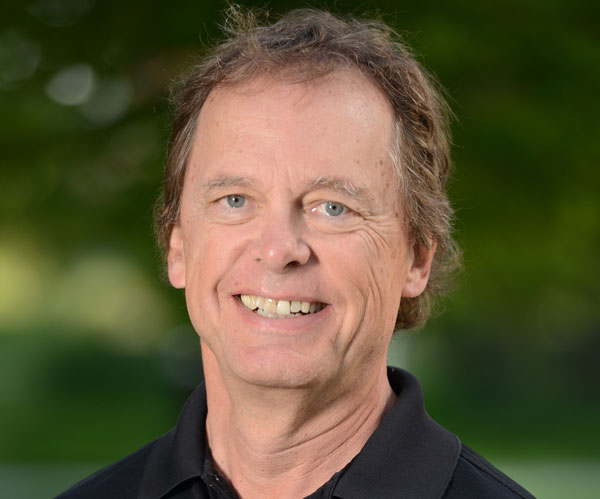
Mark Johnston, PhD
2020, Editor in Chief, GENETICS
University of Colorado School of Medicine
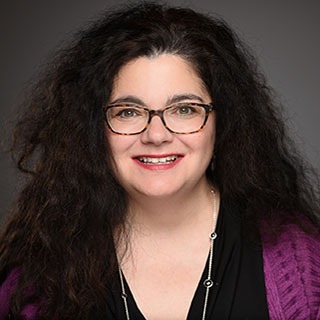
Tracey DePellegrin
Executive Director (Ex Officio)
Genetics Society of America
Vice-President Candidates
Hugo Bellen
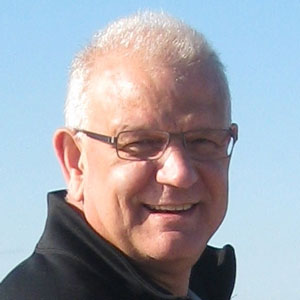
Professor, Molecular and Human Genetics, Neuroscience, and Developmental Biology, and Investigator, Howard Hughes Medical Institute, Baylor College of Medicine
Candidacy Statement: I am excited to have the opportunity to serve as the vice-president of the GSA.
I have had a passion for genetics since my second year of vet school and this passion led me to embark on a PhD in Genetics at UC Davis. I joined a fruit fly lab for my thesis project as I was attracted to the simple logic of fly genetics, the speed of breeding, the elegant genetic manipulations, and the ability to perform genetic screens, all while being able to query almost any complex biological question using genetic approaches. Genetics is more relevant than ever before. I have witnessed the growth of our field and its continuous expansion in almost all disciplines of biology.
I have been a Drosophila geneticist for 35 years and the fellows in my lab at Baylor College of Medicine (BCM) have developed numerous new genetic tools to study all aspects of biology. We have engineered tens of thousands of fly stocks to answer biological questions with more precision, speed, and depth than ever before. Genetics is the heart and soul of my research, recently expanding to the study of genes that cause rare human disease. I strongly believe that genetic model organisms will continue to contribute vast amounts of knowledge to our understanding of the human, animal and plant world. Indeed, genetic model organisms are at the root of all but a few Nobel prizes in Physiology and Medicine in the last 30 years, yet I believe we have not sufficiently capitalized on our achievements to garner support at the political level, in congress or at the NIH/NSF. In addition, it is imperative that we advocate for education related to the use and power of genetic model organisms by increasing both the accessibility and quality of educational resources. The GSA has a responsibility to develop better support for research and teaching in the genetics community.
Education: Ph.D. in Genetics, University of California Davis; Doctor in Veterinary Medicine, University of Ghent (R.U.G.); Preveterinary Medicine, University of Antwerp (R.U.C.A.); Master of Business Engineering, Solvay School of Business, University of Brussels (V.U.B.).
Career Summary: Hugo is a Professor in the Departments of Molecular and Human Genetics and Neuroscience at Baylor College of Medicine (BCM) and an Investigator of the Howard Hughes Medical Institute (HHMI) in Houston, Texas. He started his independent career as an HHMI Investigator at BCM in 1989, and has published over 260 publications.
Honors and Awards: Presidential Award for Excellence, for Leadership in Research and Research Mentoring, BCM (May 2018); Stanley N. Cohen Lecture, Perelman School of Medicine of the University of Pennsylvania (May 2018); Seymour Benzer Keynote Speaker, Neurobiology of Drosophila Meeting, Cold Spring Harbor (October 2017); Edward J. Masoro Distinguished Lecture, UT Health Science Center, San Antonio (May 2016); Michael E. DeBakey, M.D., Excellence in Research Award, BCM (May 2016); Miegunyah Distinguished Visiting Fellowship at the University of Melbourne, Australia (May 2015); George W. Beadle Award of the Genetics Society of America (March 2014); Gill Distinguished Neuroscience Investigator Award, Indiana University, Bloomington (October 2012); Distinguished Alumnus Award, University of California, Davis (October 2011); Distinguished Service Professor, BCM (March 2010); March of Dimes Chair in Developmental Biology, BCM (May 2000); Charles Darwin Chair in Genetics, BCM (October 1999); Dean’s Faculty Award for Excellence in Graduate Education, BCM (March 1999); Michael E. DeBakey, M.D., Excellence in Research Award, BCM (October 1995); N.A.T.O. Fellowship (July 1986 and July 1987); Distinguished Scholarship, University of California, Davis (September 1985); Fulbright Award, Belgian-American Educational Foundation (July 1983); Upjohn Award, Best Thesis in Veterinary Medicine, Belgium (July 1983)
Professional Service: Hugo Bellen has been a pioneer for graduate education and served as the Director of the Graduate Program in Developmental Biology at BCM for more than 20 years (until 2017). He is an exemplary citizen of the BCM community; he actively participates in defending the values of basic scientists and their rights at the leadership level, never afraid to speak out and defend his colleagues. He recently received an award for the many years of service as leader in numerous programs and committees and advocate for supporting research faculty (Sept. 2019).
Hugo is a member of the Scientific Advisory Boards of FlyBase and the NHGRI Alliance of Genome Resources, and he has been the chair of the Bloomington Drosophila Stock Center Advisory Board since 1996. He is a member of the NICHD Board of Scientific Counselors and co-chairs the Steering Committee of the Undiagnosed Diseases Network. He is a member of the External Advisory Board of the Gill Center at Indiana University, and served in the Scientific Advisory Boards of the Max Planck Institute (from 2008-2017) as well as other institutes in Belgium, Korea, and Taiwan.
Hugo has participated in the organization of numerous conferences including: The Allied Genetics Conference, TAGC 2020, which will be held in April 2020 in Washington DC (as co-organizer); the 2011, 2012, and 2014 Notch Meetings in Athens, Greece (as co-organizer); the biennial Drosophila Crete meetings from 1995 to 2000 (as co-organizer); Research Conference “Improving the genetic toolkit for Drosophila” at HHMI Janelia Farm, 2007 (as organizer); the 47th Annual DrosophilaResearch Conference in Houston, TX, 2006 (as chair); and the “Neurobiology of Drosophila” Meeting at Cold Spring Harbor Laboratory, 2001 (as organizer).
Hugo is a member of the Editorial Boards of eLife, Genetics, and PLoS Biology, and he was a member of the Journal of Cell Biology Editorial Board.
Research Interests: He currently studies human disease genes and has utilized the fly to discover dozens of novel genes in which mutations cause neurological disease in humans. In collaboration with human geneticists, he has elucidated possible pathogenic mechanisms underlying neurodevelopmental and neurodegenerative diseases using the fly as a model organism. Hugo was chosen to lead the Model Organism Screening Center (MOSC) of the Undiagnosed Diseases Network to assess the impact of novel human variants. In the past few years alone the MOSC has used the fly to validate discoveries of more than 20 human genes underlying unknown diseases. Hugo has also made some probing discoveries related to the mechanisms that may cause Friedreich ataxia, Amyotrophic lateral sclerosis, Parkinson disease, Alzheimer disease, and others. In doing so, he is cementing the status of Drosophila as a model system for human disease gene validation, and unraveling possible pathogenic mechanisms.
Hugo Bellen has pioneered the development of many novel technologies that are currently used by the majority of fly labs across the world. As the head of the Drosophila Gene Disruption Project, his laboratory has developed numerous sophisticated genetic tools and generated tens of thousands of mutants fly lines that have transformed Drosophila biology. Finally, his group has made major contributions over the past 30 years to our understanding of nervous system development, synaptic transmission, and mechanisms of neurodegeneration.
Website: http://flypush.imgen.bcm.tmc.edu/lab/index.html
Joseph Heitman
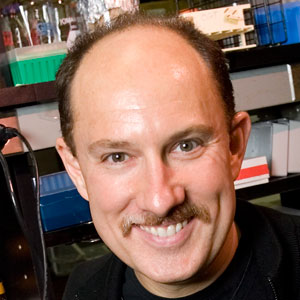
James B. Duke Professor and Chair, Department of Molecular Genetics and Microbiology, Duke University School of Medicine
Candidacy Statement: Genetics has forged the trajectory of my career from studies on restriction-modification systems and DNA break repair in bacteria to yeast as a model for immunosuppressive drug action to the evolution of sexual reproduction and virulence of fungal pathogens. As a staunch advocate of the power of genetic model systems to reveal general principles of biological and medical importance, I have long been a Genetics Society of America member because it brings geneticists together, irrespective of scientific question or organism of focus. Experiences as an editor for GENETICS (2012-2018), long-term attendee (2001-present) and co-organizer of the biennial GSA sponsored Asilomar Fungal Genetics Meeting (2007), member and elected chair of the Fungal Genetics Policy Committee (2013-2019), member of the GSA conferences committee (2017-2019), and most recently as a member of the GSA Annual Appeal and Corporate Engagement Committees (2019-present), have illuminated the broad impact of the GSA in publishing, communicating, and advocating for both science and scientists. The GSA is a unique forum that promotes genetics research, discovery, and education at all levels, advances the science of genetics through its publications and sponsored meetings, promotes early career development through the DeLill Nasser Award program and meeting engagement and programs, and serves our community in advocacy for policy and funding decisions that impact science and society. It would be an honor to serve on the GSA Board as vice president, working to ensure that genetics continues to thrive as a vibrant discipline, and that the lessons learned serve as a lasting legacy for the future. All scientific societies face transitions ahead, in part driven by changes as publications move to open access. The adage in life that “change is inevitable, and change is good” applies to this challenge the GSA faces. If elected, I am committed to engaging and working together with other GSA and community leaders to ensure this transition is navigated adeptly, adroitly, and with equanimity. Our goal is to ensure that the Genetics Society of America remains a vibrant society, one whose mission is to “deepen understanding of the living world by advancing the field of genetics”. The foundations to achieve this goal are to bring geneticists together and support, sustain, and inspire their research visions globally, and continue to engage students and fellows in creative ways, as they are the future of the GSA.
Education: B.S. in chemistry, general and special honors, M.S. in biochemistry, University of Chicago (1984); Ph.D., Rockefeller University (1989); M.D., Cornell University Medical College (1992); Cold Spring Harbor Yeast Genetics Course, (1988).
Career Summary: Postdoctoral training:EMBO Fellow, Biozentrum, University of Basel (1989–1991). Faculty appointments: Assistant Professor, (1992–1998), Associate Professor (1998–2002), Professor, (2002–2004), James B. Duke Professor (2004–present), Chair, Department of Molecular Genetics and Microbiology (2009–present), Duke University; Investigator, Howard Hughes Medical Institute (1992–2005).
Honors and Awards: AMGEN award, American Society for Biochemistry and Molecular Biology (2002); Squibb Award, Infectious Diseases Society of America (2003); Fellow of the American Society for Clinical Investigation (2003); Fellow of the American Association for the Advancement of Science (2004); Fellow of the American Academy of Microbiology (2004); Fellow of the Association of American Physicians (2006); MERIT Award, NIH/NIAID (2011-2021); Stanley J. Korsmeyer Award, American Society for Clinical Investigation (2018); Rhoda Benham Award, Medical Mycological Society of the Americas (2018); ASM Award for Basic Research, American Society for Microbiology (2019); Edward Novitski Prize, Genetics Society of America (2019).
Honorific lectures: Division F Lecture, American Society for Microbiology (2009); Foundation Lecture, British Society for Medical Mycology (2010); Karling Lecture, Mycological Society of America (2011);Max Delbrück Lecture, German Genetics Society (2017); Gene E. Michaels Honorary Mycology Lecture, University of Georgia, Athens, GA (2019).
Professional Service: Conference organization: FASEB meeting on “Enzymes that act on nucleic acids” (co-organizer, 1996); Keystone meeting on “Immunophilins” (co-organizer, 2000); GSA Asilomar Fungal Genetics Meeting (co-organizer, 2007); American Academy of Microbiology Colloquium, “The Fungal Kingdom” (Co-convener, 2007); FASEB meeting on “Microbial Pathogenesis” (co-chair, 2011; chair, 2013); Keystone meeting on “Fungal Pathogens: Basic Biology to Drug Discovery” (co-organizer, 2012); American Academy of Microbiology Colloquium, “Fungal Pathogens of Humans, Animals, and Plants” (Co-convener, 2017); Editorial: Editor, GENETICS (2012–2018); Board of Editors, mBio (2013–present); Associate Editor, PLOS Genetics (2012–present); Section editor (2008–2011), Pearls Review editor (2011–present), PLOS Pathogens; Associate Editor, Fungal Genetics and Biology (2001–present); Editorial board, PLOS Biology, Current Biology, Cell Host & Microbe(2006–present); Editor, Eukaryotic Cell(2002–2012); Selected others: Instructor, Woods Hole Marine Biological Laboratory Molecular Mycology course (1998–present); Director, Duke University Graduate Training Program in Genetics and Genomics (2002-2009); Scientific Advisory Committee, Canadian Institute for Advanced Research Integrated Microbial Biodiversity Program (2011–2018);Director, Tri-Institutional (Duke University, UNC-Chapel Hill, North Carolina State University) Molecular Mycology and Pathogenesis Training Program (2012-present); co-editor for seven textbooks on fungal genetics and microbial pathogenesis, 2006-present, including most recently The Fungal Kingdom, ASM Press (2018); Co-Director and Fellow, Canadian Institute for Advanced Research (CIFAR) program Fungal Kingdom: Threats & Opportunities (2019-2024).
Research Interests: Our studies apply genetics and genomics to address key questions in biology and medicine, and span model yeasts and pathogenic fungi including Saccharomyces cerevisiaeand Cryptococcus neoformansand others. Our efforts have advanced three main areas. First, defining mechanisms of action and targets of natural product immunosuppressive drugs, including the discovery of FKBP12 and TOR as the target of rapamycin. Second, elucidation of molecular networks governing fungal development, virulence, and nutrient sensing. Third, discovery of mechanisms of sex determination, transitions between outcrossing and selfing, and a novel mode of unisexual reproduction and its impact on evolution of eukaryotic microbial pathogens with implications for the origins of sexual reproduction.
Website: https://mgm.duke.edu/faculty-and-research/primary-faculty/joseph-heitman-md-phd-2/
Treasurer Candidates
Michael Buszczak
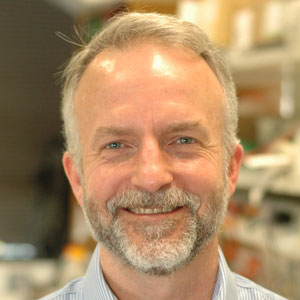
Professor, E. E. and Greer Garson Fogelson Scholar in Medical Research, Department of Molecular Biology, and Center for Regenerative Science and Medicine, The University of Texas Southwestern Medical Center
Candidacy Statement: I would be pleased and honored to serve as Treasurer of the Genetics Society of America. I joined the GSA in 1998 as a graduate student training in Lynn Cooley’s lab at Yale University, where I studied ecdysone signaling during Drosophila oogenesis. The support of this society and the colleagues I have met through GSA sponsored events have continued to help me throughout my career. This is truly an exciting time in genetic research. While emerging technologies help us better characterize established model systems such as yeast, flies, worms, zebrafish, Xenopus and mice, they also open the possibility of characterizing alternative organisms and addressing important questions in evolutionary developmental biology. The GSA will continue to play a central role in supporting our research efforts, promoting high standards within our scientific community, managing journals such as Genetics and G3: Genes, Genomes and Genetics, and providing a forum for important scientific and ethical debates. Helping to organize the Annual Drosophila Research Conference this past year re-enforced my appreciation for the GSA. While changes in the publishing landscape present some fiscal challenges, there are also many potential opportunities for GSA to partner with different sponsors and organizations. As Treasurer, I will make every effort to promote the financial security of the GSA for years to come, so that our society can continue to thrive and carry out its important missions, which include advocating for funding of model system research, providing professional development resources and opportunities for students, fellows and early career scientists, sponsoring scientific meetings, and promoting scientific understanding within the public domain.
Education: BS in Biology and English, Tufts University (1994); PhD in Biology (with Lynn Cooley), Yale University (2002).
Career Summary: Postdoctoral training: Carnegie Institution for Science (with Allan Spradling) (2002–2007); Faculty appointments: Assistant Professor (2007–14), Associate Professor (2014–19), Professor (2019–present), Department of Molecular Biology, UT Southwestern Medical Center.
Honors and Awards: HHMI Summer Internship (1993), John Spangler Nicholas Prize (2002), ACS Post-doctoral Fellowship (2004), E.E. and Greer Garson Fogelson Scholar in Medical Research (2007), New Investigator Award, Simmons Cancer Center, UTSW (2008), Basil O’Connor Starter Scholar Research Award, March of Dimes (2009).
Professional Service: GSA related: Organizer, 60th Annual Drosophila Research Conference (2019). Session Chair, 55th Annual Drosophila Research Conference, Larry Sandler Award selection committee (2014, 2018). Other service: Associate Director, Center for Regenerative Science and Medicine (UT Southwestern; 2019-present). Editorial boards: eLife (2018–present). Abstract programming committees: International Society for Stem Cell Research (2011, 2013, 2014, 2015, 2016). Standing member American Cancer Society Scientific Review Committee (2017-present). Ad hoc reviewer for The Wellcome Trust, NYSTEM, The Israel Science Foundation and the NIH (Development-2 (Dev2), ZRG1 CB-F.55, CHHD-C, NCI Site Visit). Standing Member (CMAD) 2018 – present. Outreach: STARS and SURF programs at UT Southwestern.
Research Interests: Our laboratory seeks to gain new insights into the unique biology of germ cells, using a variety of genetic, molecular, biochemical and live-cell-imaging techniques. We are currently focusing on how germ cells regulate the translation of their transcriptomes, interact with their niche and other somatic cell neighbors, and preserve the integrity of their genomes. We hope our discoveries will lead to a better understanding of how perturbations in normal gene function cause disease. We mainly use the fruit fly Drosophila melanogaster but have started to branch out to other model systems. We have active collaborations with members of the worm, zebrafish and human genetics communities.
Website: https://www.utsouthwestern.edu/labs/buszczak/research/
Kevin Struhl
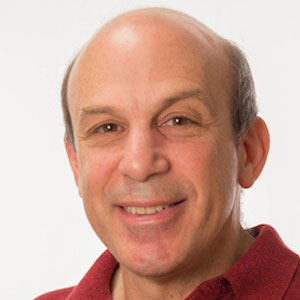
David Wesley Gaiser Professor, Biological Chemistry and Molecular Pharmacology, Harvard Medical School
Candidacy Statement: My career started 45 years ago during the very early stages of recombinant DNA technology with the first example of functional expression of a eukaryotic protein in E. coliand cloning a yeast gene and development of tools of yeast molecular genetics. Throughout the years, I have worked on a very wide range of gene regulatory mechanisms and associated areas, primarily from a molecular genetic perspective. These studies have been primarily performed in yeast, but have also included E. coliand human cells in the context of cancer biology. I have served on a range of advisory committees, nationally and internationally, in academic, biotechnology, and legal setting, and I was the acting Chair of my department for several years. I am particularly interested in educating society about genetic ideas and the role of basic research. Such education should start early (elementary school) and be directed to society in general, including advice to governmental and non-governmental organizations that influence American life. At another level, my goal would be to facilitate interactions within the genetic community, particularly the connections among different areas of genetic research as well as connections between basic genetic research and practical (medical or otherwise) issues, including ethical considerations of applied genetic techniques. I am also interested in career issues in genetics, including the role of students, postdoctoral fellows, and faculty, as well as the various career choices for the next generation. Lastly, I am committed to the recently implemented fundraising strategy that emphasizes new sponsorships from industry and private investors in addition to long-standing contributions from GSA members.
Education: S.B., S.M. in biology, Massachusetts Institute of Technology (with Boris Magasanik); PhD. with distinction in biochemistry, Stanford University (with Ronald W. Davis)
Career Summary: Postdoctoral training: Visiting Scientist, M.R.C. Laboratory of Molecular Biology (with Sydney Brenner) (1980-1981); Faculty appointments: Assistant Professor 1982-1986, Associate Professor 1986-1989, Professor 1989-1991, David Wesley Gaiser Professor 1991-Present, Acting chairman 1997-1998, Dept. of Biological Chemistry Harvard Medical School; Associate Member, Broad Institute 2014-Present
Honors and Awards: NSF undergraduate research fellowship 1972, 1973, NIH pre-doctoral traineeship 1974-1979, Jane Coffin Childs postdoctoral fellowship 1980-1981, Searle Scholar 1983-1986, Eli Lilly Award in Microbiology 1990, Fellow, American Academy of Microbiology 1993, MERIT award, National Institutes of Health 1993, Fellow, American Association for the Advancement of Science 2005, Distinguished Researcher, IMBB, Crete 2006, Fellow, American Academy of Arts and Sciences 2008, Member, National Academy of Sciences 2010, Member, National Academy of Medicine 2015
Professional Service: Editorial Boards: Current Protocols in Molecular Biology, 1987-Present, Molecular and Cellular Biology, 1987-2013, Protein Expression and Purification, 1990-1996, Biochimica et Biophysica Acta Reviews on Cancer 1991-1996, Biological Chemistry Hoppe-Seyler 1994-2000, Genes to Cells 1996-1998, Cell Growth & Differentiation 1997-2002, Epigenetics & Chromatin 2008-Present, Transcription 2009-Present, eLife 2011-Present (Senior editor 2015-), Journal of Molecular Biology 2017-Present; Grant Reviewing: NIH Molecular Biology study section ad hoc1988, 1995, NIH Molecular Biology study section 1990-1994, NIH site visit of internal group in Child Health & Development 1996, NIH Molecular Cytology study section ad hoc 2003; Conferences: Organizing committee, Annual symposium on Frontiers of Science, National Academy of Sciences, 1991-1993, Organizer, FASEB meeting on Transcriptional regulation during cell growth, differentiation, and development, 1998, Scientific committee, International conference of yeast genetics and molecular biology, Prague 2001, Organizer, Keystone meeting on Transcriptional Regulation, 2008, Organizer, Banbury meeting on Metformin, 2013; Advisory Boards: Institute Molecular Biology & Biotechnology, Crete 1990-2008, Pharmagenics Inc. 1991-1997, Scriptgen Inc. 1993-2000, Eli Lilly Award Nominating Committee 1997-2000, Phylos Inc. 1998-2002, Sangamo Inc. 1999-2015, American Society of Biochemistry & Molecular Biology 2006-2009, Klarman Cell Observatory, Broad Institute 2012-Present, Weizmann Institute 2019
Research Interests: Gene regulation, Transcriptional and post-transcriptional mechanisms, Development of molecular genetic approaches, Chromatin, Epigenetics, Cancer
Website: https://struhl.med.harvard.edu
Director 1 Candidates
Irene Miguel-Aliaga
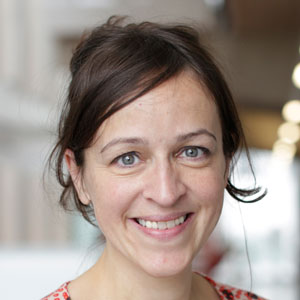
Professor of Genetics and Physiology, Imperial College London and Genes and Metabolism Section Chair, MRC London Institute of Medical Research, United Kingdom
Candidacy Statement: I am excited to be nominated for a position on the Board of Directors of the GSA. Over the years, my research has greatly benefited from access to GSA journals, participating in GSA conferences, and other initiatives such as the GSA-supported FlyBoard. I would be thrilled to be able to contribute something back by helping shape and deliver the GSA’s long-term mission.
I hope to contribute in three ways. Scientifically, I would seek to maximize the broad impact of our field by fostering links with emerging (or re-emerging) disciplines, such as biophysics, bioengineering or physiology. I believe there is great potential for synergy between us, especially in light of the recent rapid technological advances in our genetics field – for example, at the level of genome engineering and high-throughput/quantitative approaches. I am well placed to both advocate for the genetics field and identify emerging opportunities for multi-disciplinarity; my own research is at the interface of genetics, developmental biology and physiology. I am also exposed to diverse research areas through my activities as Section Chair at MRC LMS/Imperial College London, as well as my membership of various international advisory boards and grant panels, and my co-organization of meetings, including Keystone and EMBO symposia. As someone who makes use of different experimental systems (fruit fly, mouse, organoids, human), I am also aware of the value of experimental diversity and the need to nurture it in order to deliver meaningful answers to a range of scientific questions.
As well as fostering scientific excellence and maximizing scientific impact, I also hope to continue to strive for a more inclusive and diverse genetics community. I have a long-standing commitment to promoting underrepresented minorities at multiple levels: from supporting them as students or early career scientists to championing them once they become independent scientists. For example, my lab has hosted undergraduate students from low-income households through a dedicated placement scheme, and I contributed to the creation of a postdoctoral mentorship scheme in my institute. I also enjoy conveying the value of genetics research to lay audiences; some of our recent initiatives involved workshops where scientists interacted with chefs or textile design students. Membership of the GSA Board will provide opportunities to widen my efforts in these directions.
Finally, I hope to raise the overseas visibility of the GSA and increase the society’s engagement with the international genetics community. As someone who trained in various European countries, as well as in the US, I am well placed to do so. The benefits of increased internationality are two-fold: the mission and values of the GSA will reach a broader community, and synergy with similarly minded scientific networks and societies will amplify its scientific advocacy.
Education: DPhil in Genetics, University of Oxford (with Prof. Kay Davies)
First-class honours in Biochemistry, Universitat Autonoma de Barcelona, UAB
Career Summary: Postdoctoral Research Fellow, Harvard Medical School and Linköping University (with Prof. Stefan Thor) (2001-2004), Marie Curie and MRC Postdoctoral Fellow, MRC National Institute for Medical Research (with Dr. Alex P. Gould) (2005-2008), Wellcome Trust Research Career Development Fellow, University of Cambridge (2008-2012), Programme Leader Track, MRC LMS (2012-2015), Reader in Genetics and Physiology, Imperial College London (2014-2016), Programme Leader. MRC London Institute of Medical Sciences (LMS, formerly CSC) (2015-Present), Professor of Genetics and Physiology, Imperial College London (2016-Present), MRC LMS Section Chair (Genes & Metabolism Section) (2017-Present)
Honors and Awards: Elected to the Academy of Medical Sciences (FMedSci) (2019), Suffrage Science Women in Science Award (2018), Elected to EMBO (2017), Featured by the Journal of Cell Scienceas a “cell scientist to watch” (2015), Featured in the Physiological Society’s “Women Physiologists” book (2015), Elected to EMBO Young Investigator Programme (EMBO YIP) (2012-2014), Wellcome Trust Research Career Development Fellowship (2008-2014), Royal Society University Research Fellowship (declined in favour of RCDF) (2008), EU Marie Curie Intra-European Fellowship (2005-2007), University of Oxford Goodger Scholarship (1998), “La Caixa”-British Council award (1997-1998), Spanish Ministry of Education and Science prize: Best National Academic Record (1997), UAB Prize for the best academic record (1997), Spanish Ministry of Education and Science Studentship (1996)
Professional Service: Current membership and reviewer activities: Member of MRC Neurosciences & Mental Health Board (2019-Present),Member of Scientific Advisory Committee, Centre for Integrative Genomics (CIG), University of Lausanne (2019-Present), Member of Scientific Advisory Board, Instituto de Investigación Sanitaria del Principado de Asturias (ISPA) (2019-Present), Chair of Scientific Advisory Board, Institute of Functional Genomics of Lyon (IGFL) (2017-Present),Member of promotion panel, University of Cyprus (2018), Member of promotion panel, Institut Curie, Paris,(2017), BBSRC Pool of Experts (frequent reviewer and occasional committee member) (2015-2019), Wellcome Trust Pool of Prospective Committee Members (2016-Present), Member of MRC LMS Institute Planning and Operations Group (2015-Present), Member of Imperial College European Advisory Group (2017-Present), Member of MRC LMS Space Committee (2015-Present), Member of Faculty of Medicine Imperial College Research Fellowships Panel (2016-Present), Deputy Chair of Athena Swan Opportunities Committee (2016-2017), Member of the Athena Swan Self-Assessment Team and Opportunities Committee (2014-Present), Academic advisor to the LMS Bioinformatics Facility (2015-Present), Member of LMS Facilities Review Committee (2016-Present), Ad-hoc reviewer for ERC, Wellcome Trust, MRC, BBSRC, Leverhulme Trust, NC3Rs, ANR (France), DFG (Germany), ANEP (Spain), ISF (Israel), Novo Nordisk (Denmark), Research Foundation Flanders – FWO (Belgium), Research Promotion Foundation (Cyprus) and the Nutrition Obesity Research Center (University of Michigan), Scientific reviewer and committee member for “Ramon y Cajal” awards 2010 (Spanish government returning fellowships for independent researchers), Interviewer for EMBO Long-Term Fellowships. Conferences: Keystone Symposium “Metabolic Decisions in Development and Disease”, Santa Fe, New Mexico, USA. Symposium co-organiser (2021), ASCB/EMBO Meeting Program Committee member (2020-2021), EMBO Conference “Molecular and Developmental Biology of Drosophila”. Organising committee co-chair (2020-2026), “Gastronauts 2020: A Symposium for Gut-Brain Matters”, Nantes, France. Symposium co-organiser (2020), EMBO Symposium “Inter-organ Communication in Development and Disease”, EMBL Heidelberg, Germany. Symposium co-organiser (2020), 1stLMS/Helmholtz Munich Symposium on Metabolism, London, UK (2020), International Insect Hormone Meeting. Member of the International Organizing Committee (2019-Present), EMBO Conference “Molecular and Developmental Biology of Drosophila”, Crete, Greece. Organising committee member (2014-2020), 25thEuropean Drosophila Research Conference, London, UK. Workshop co-organiser and chair (2017), Brainy Tongue: The Sensory Logic of the Gastronomic Brain, San Sebastian, Spain. Workshop co-organiser (2016), 24thEuropean Drosophila Research Conference, Heidelberg, Germany. Workshop co-organiser and chair (2015), 23rdEuropean Drosophila Research Conference, Barcelona, Spain. Workshop co-organiser and chair (2013), 22ndEuropean Drosophila Research Conference, Lisbon, Portugal. Workshop co-organiser and chair (2011), LMS external seminar series coordinator (2016-Present), LMS external seminar series organiser (2014-2015), Department of Zoology Tea Talks organiser (University of Cambridge) (2010-2012), London Gut Club (formerly Cambridge Gut Club) organiser (2010-Present)
Research Interests: I am interested in the plasticity of adult organs; how and why organs that we commonly regard as fully developed change in size and/or function in response to environmental or internal challenges.
We use the intestine and its neurons to explore these questions because they allow us to explore organ plasticity from an integrated perspective. We investigate how an organ senses its internal milieu and the environment (e.g. nutrients, microbiota), how its adult progenitors respond by either maintaining or resizing the organ, and how its different cell types (epithelial, muscle, neural) communicate to achieve coordinated, organ-level remodelling.
Our work is at the interface of developmental biology and physiology; we use genetic approaches to interfere with specific gene or cell functions using genome editing and/or genetically encoded tools such as thermo/optogenetics to interfere with neuronal activity. We assess the consequences at the levels of molecules (transcriptomics, metabolomics), cells (imaging), organ (peristalsis, modelling), and whole animal (behavioural assays and physiological readouts).
We typically use Drosophila melanogaster for discovery; since the identification of adult somatic stem cells in the Drosophila intestine, there has been a surge of studies using this invertebrate organ to investigate various aspects of physiology. Like its mammalian counterpart, the digestive tract of Drosophila is functionally regionalized. It harbours a resident microbiota, and consists of cell types similar to those found in the human gastrointestinal tract, including digestive/absorptive enterocytes and hormone-secreting enteroendocrine cells.
Informed by our Drosophila work, we sometimes explore specific questions in mice (in vivo or using intestinal organoids) and/or humans – for example, when our Drosophila research suggests new or unexpected explanations for certain aspects of mammalian physiology, such as contributions of cell-intrinsic mechanisms to sexual dimorphisms in the intestine.
Current projects in the lab are investigating sex differences in the intestine, how and why the intestine is remodelled during reproduction, and mechanisms of intestinal nutrient sensing.
Website
http://www.miguelaliagalab.com/
Catherine (Katie) Peichel
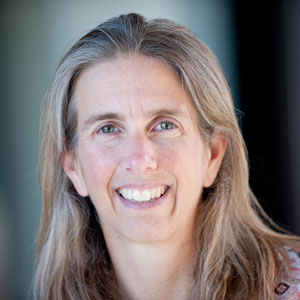
Professor, Institute of Ecology and Evolution, University of Bern, Switzerland
Candidacy Statement: As an undergraduate at UC Berkeley, I fell in love with the simple logic and elegant experiments of genetics. This love for taking genetic approaches to address biological questions has driven my career ever since. I started as a mouse geneticist, publishing my first major paper from my PhD in GENETICS. For my postdoctoral fellowship, I used what I had learned from model organisms to develop the threespine stickleback fish as a new model organism that has allowed us to identify the genetic and molecular changes that underlie the evolution of both morphological and behavioral evolution. With the advent of new technologies, many more systems are now amenable to genetic approaches. With my background in both traditional and non-traditional model systems, I would like to continue to work to bring these communities together to learn from each other. The new Population, Evolutionary and Quantitative Genetics conference is certainly one exciting step taken by the GSA to do so, and I will work to continue this momentum. Having moved my lab to Switzerland, I will also work to promote the GSA and its journals outside of North America to foster an international community of geneticists. Finally, as a new author on the forthcoming 12thedition of the Introduction to Genetic Analysistextbook, I would also like to contribute to the efforts of the GSA to provide excellence in genetics education, so that we can continue to inspire students to fall in love with genetics.
Education: BA in Molecular and Cellular Biology (emphasis in Genetics), University of California, Berkeley (1991); PhD in Molecular Biology, Princeton University (1998)
Career Summary: Postdoctoral Training: Stanford University with David Kingsley (1998-2002). Faculty Appointments: Assistant Member (2003-2008), Associate Member (2008-2013), Full Member (2013-2016), Fred Hutchinson Cancer Research Center; Affiliate Assistant Professor (2003-2009); Affiliate Associate Professor (2009-2013); Affiliate Professor (2013-present), Department of Biology, University of Washington; Professor, University of Bern, Switzerland (2016-present)
Honors and Awards: Burroughs Wellcome Fund Career Award in the Biomedical Sciences (2002); Fellow of the John Simon Guggenheim Memorial Foundation (2013)
Professional Service: GSA related: Associate Editor, GENETICS (2016-present); Working Group Member, GSA Community, Conferences, and Journals (2018). Other editorial activities:Associate Editor, Evolutionary Ecology Research (2017-present); Guest Editor, PLoS Genetics (2011-present); Associate Editor, Axios Review (2013-2017); Associate Editor, Chromosome Research (2012-2015); Associate Editor, Evolution (2009-2011); Associate Editor, Genome Research (2006-2009). Scientific Societies: Council Member, European Society for Evolutionary Biology (2019-present); President, American Genetic Association (2015); Nominating Committee, Society for the Study of Evolution (2011-2013); Council Member, American Genetic Association (2010-2012). Conference organization:Gordon Research Conference on Speciation (2019); Chromosome Evolution, American Genetic Association Presidential Symposium (2015); Seventh International Conference on Stickleback Behavior and Evolution (2012); Tree of Sex, National Evolutionary Synthesis Center (NESCent) Working Group (2011-2014); Genomics and the Life Aquatic, Friday Harbor Laboratory Centennial Symposium (2006). Review:Member, Swiss National Science Foundation PRIMA Commission (2019-present); Member, NIH Genetic Variation and Evolution study section (2012-2014); ad hoc reviews (>50) for NIH and NSF as well as numerous Canadian and European funding organizations (2004-present). Outreach and education:Director, Fred Hutchinson Cancer Research Center Summer Undergraduate Research Program (2003-2016); Director, University of Washington Molecular and Cellular Biology graduate program (2014-2016).
Research Interests: Evolutionary genetics in stickleback fish. My group is broadly interested in identifying the genetic and molecular mechanisms that underlie evolutionary processes, using stickleback fish as a model system. Our current research is focused on the genetic and genomic basis of adaptation and speciation, the genetic and neural mechanisms that underlie behavioral evolution, and the evolution of sex chromosomes.
Website: http://www.ee.iee.unibe.ch/index_eng.html
Director 2 Candidates
Oliver Hobert
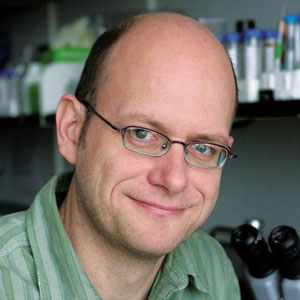
Professor, Department of Biological Sciences, Columbia University
Investigator, Howard Hughes Medical Institute
Candidacy Statement: Genetics is undergoing a technology-driven revolution right now, with approaches ranging from single cell genomics to CRISPR/Cas9 genome engineering changing the way we can interrogate the genome. Classic model systems profit greatly from these approaches, but perhaps even more importantly, many new, interesting species can now be subjected to genetic analysis. We as a society should take an active role in helping new model system communities to establish themselves (e.g. via providing funding for meetings). With a broadening of the base of genetic analysis, it will be more important than ever to support the GSA in providing resources for the genetics community: From publication venues, to meeting organization, to science advocacy for policy makers and funders. I have co-organized a number of meetings (including a GSA-sponsored one) and I have served as an editor for GENETICS since 2008, first as Associate Editor, then Senior Editor and Reviews Editor. I have also served for two terms on the board of the Society for Developmental Biology and I am excited about the possibility to contribute my experience to serve the GSA in the role of Director.
Education: Ph.D. 1995 Max Planck Institute for Biochemistry & University Bayreuth (Advisor: Axel Ullrich), B.Sc./M.Sc. 1992 University of Bayreuth (Advisor: Gerhard Krauss)
Career Summary: Investigator, Howard Hughes Medical Institute (2005-present), Professor at Columbia University, Department of Biological Sciences (2015-present), Assistant Professor (1999-2005), Associate Professor (2005-2009), Full Professor (2009-2015) at Columbia University Medical Center, Department of Biochemistry and Molecular Biophysics, Postdoctoral fellow (Harvard Medical School, advisor: Gary Ruvkun; 1996-1999)
Honors and Awards: Jacob Javits Award in the Neurosciences (2015), Fellow of the American Association for the Advancement of Science (2014), Harland Winfield Mossman Award in Developmental Biology (2008), Rita Allen Foundation Scholar Junior Faculty Award (2001), Klingenstein Fellow (2000), Alfred P. Sloan Research Fellow (2000), Searle Scholar Junior Faculty Award (2000), Basil O’Connor Scholar Award (2000), Human Frontiers in Science 10thAnniversary Award (1999), Junior Investigator Award from the German Academy of Science “Leopoldina” (1997), Human Frontiers in Science Postdoctoral Fellowship (1996)
Professional Service: Editor: Reviewing Editor, eLife (2012-present), Associate then Senior Editor, Genetics (2008-present), Editor, WormMethods (2009-2017), Associate Editor, Wiley Interdisciplinary Reviews (WIREs): Developmental Biology (2012-present), Guest Editor Current Opinions in Neurobiology “Neuronal Identity” (2018), Current Opinions in Neurobiology “Development” (2009), Current Topics in Dev. Biol. “Development of Neural Circuitry (2009), Journal of Neurobiology “Genes and Behavior” (2002); Editorial Boards: Current Biology (2009-present), Development (2003-present), Developmental Biology (2007-present), Neural Development (2006-present), Mechanisms of Development (2006-present), Developmental Dynamics (2009-2015); Other board memberships: Board member of Society for Developmental Biology (2008-2014), Scientific Advisory Board WormBase (2011-present), WormBoard member (2016-present); Meeting (Co-)Organization: EMBO meeting “Evolution of Cell Types” (2019), NYU Abu Dhabi Parasitic Nematode Workshop (2018), Fondation des Treilles meeting “Plasticity of cellular identity” (2016), SDB SatelliteSymposium “Making and breaking the left-right axis: Laterality in development and disease” (2013), 18th International C. elegans meeting, Los Angeles (2011), Cell Press Conference “Epigenetics” (2011), Mini-Symposium “RNA and Development” at Annual Meeting of American Society for Cell Biology (2006); Grant Review Panels: NIH study section Neurogenesis and Cell Fate (2008-2012; chair 2010-2012; ad hoc 2001-2008), NIH study sectionSynapses, cytoskeleton, trafficking (2017-2023), Life Sciences Research Foundation postdoctoral fellowship review panel (2015-present), Ad hoc review panels for Spanish National Research Council (CSIC), Science Foundation Ireland (SFI), Simons Foundation,National Science Foundation (NSF), Human Frontiers in Science Program, Medical Research Council, UK, French Ministry of Research and Education, Natural Environment Research Council (NERC), UK, European Science Foundation, United States/Israel Binational Science Foundation (BSF) , Israeli Science Foundation (ISF), Biotechnology and Biological Sciences Research Council (BBSRC), UK; Teaching: Organizer & Lecturer Advanced Undergraduate course “Neurogenetics”, Guest Lecturer in Graduate courses “Developmental Neurobiology” and “Principles of Developmental Biology”, Guest lecturer EMBO Course “Developmental Neurobiology”, Guest lecturer in Cold Spring Harbor Course “C. elegans. Program director NIH T32 Training Grant “Stem Cells and Cell Lineage Specification”; Trainees: 25 past Graduate Students (5 currently Faculty Members),19 past Postdoctoral Fellows (12 currently Faculty Members)
Research Interests: My lab’s main interest is focused on understanding the genetic programs that generate the astounding diversity of cell types in a nervous system. We study this problem using C. elegans as a model system and have confirmed some of our results in mice as well. We are also interested in the genetics of neuronal circuit formation during development and how nervous system development differs between the two sexes of the worm. We have also invested efforts in generating tools and technology that enable and facilitate genetic analysis.
Website: http://hobertlab.org/
Steven Robinow
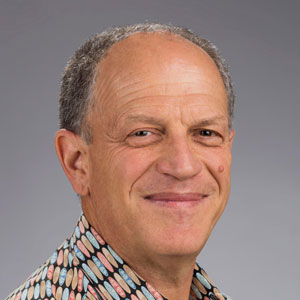
Associate Dean, College of Natural Sciences, California State University Chico
Candidacy Statement: I am interested in serving on the GSA Board of Directors to support the efforts of the GSA to improve the teaching and learning of science. Mounting evidence shows that improved teaching practices support the success of a more diverse population of students. Failure to implement these practices disproportionately disadvantages our historically underserved students. There are numerous local and national efforts designed to improve STEM education through faculty training. I am involved in two such efforts. Locally, I participate in the Transforming STEM Teaching Faculty Learning Program, a partnership with UC Berkeley that has provided training in evidence-based teaching practices to faculty on my campus for the last three years. Nationally, I serve on the leadership team of the Summer Institutes on Scientific Teaching, an organization whose goal is to revolutionize the teaching of science by training faculty in the science of learning. The Summer Institutes, originally funded by HHMI and sponsored by the National Academies of Sciences runs workshops that introduce STEM educators to the principles of evidence-based teaching. I am committed to improving student outcomes in science classrooms. I see service to the GSA as one way that I can help our students. I look forward to supporting the efforts of the GSA to increase opportunities for the training of faculty and soon-to-be faculty in the science of teaching to improve the success of our students.
Education: BA in Genetics, University of California, Berkeley, PhD in Biology, Brandeis University
Honors and Awards: National Academies Education Mentor in the Life Sciences (2016, 2017), National Academy of Sciences (2011-2013), Fellow, Partnership for Undergraduate Life Science Education (2016-2017), Chancellor’s Citation for Meritorious Teaching University of Hawaii (2006, 2013), National Academies Education Fellow in the Life SciencesNational Academy of Sciences (2005), Presidential Citation for Meritorious Teaching University of Hawaii (2001)
Professional Service: Education: I currently serve on the leadership team of the Summer Institutes for Scientific Teaching (https://www.summerinstitutes.org/about). The Summer Institutes are devoted to improving STEM education by applying the science of learning to the learning and teaching of science. This organization provides workshops to train faculty and future faculty in inclusivity, assessment, and active learning as a means to improve learning environments to support the success of all our students.
I also am involved in the Transforming STEM Teaching Faculty Learning Program, a partnership with UC Berkeley. This program has provided training in evidence-based teaching practices to faculty on my campus for the last three years.
Research Interests: I ran an externally funded research laboratory at the University of Hawaii for nearly two decades during which time I trained over fifty undergraduates. Seven of these students have co-authored publications. I also trained two MS students, a Ph.D. student, and two post-doctoral fellows. My lab focused on the role of nuclear receptors in neural development of the fruit fly Drosophila melanogaster. We initially focused on the role of the ecdysone receptor on developmentally regulated cell death in the nervous system. More recently we studied the role of the nuclear receptor unfulfilled on the development of the mushroom bodies, a region in the fly brain that plays a central role in learning, memory, and other behaviors.
Website: https://www.csuchico.edu/nsci/
Director 3 Candidates
Steven Munger
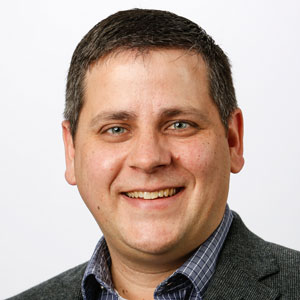
Assistant Professor of Systems Genetics, The Jackson Laboratory
Candidacy Statement: I’m honored – and frankly surprised – to be nominated for a Director position on the GSA. As a young PI (in stage if not in age) only a few years removed from my post-doc, I do not have a long list of discoveries to highlight, especially when compared to the accomplishments of more established investigators that usually occupy these prestigious positions. If you value that decorated CV above all else, you should probably look elsewhere. However, if you enjoy betting on the longshot or rooting for the upset, let me offer my biography and a few reasons why I think I’m deserving of your vote.
My love of genetics was sparked in Sally Camper’s undergraduate genetics course at Michigan, and led me to pursue a PhD in developmental genetics at Duke. During this period, I witnessed the explosion in genomic technologies, and I became interested in applying “Big Data” to my own research. This interest was limited by a complete absence of computational training, but it motivated me to pursue a computational post-doc at The Jackson Laboratory (JAX), where I learned to code at the age of 35. This difficult but rewarding decision provided me with a unique perspective on the challenges (and opportunities) facing established researchers and trainees in our increasingly data-intensive arena. My independent research group is the F1 hybrid of my diverse training experiences, and is composed of experimentalists and computational researchers that both receive cross-disciplinary training.
I try to share my passion and experience as much as possible through teaching, service, and public outreach. I teach short courses at JAX and CSHL that introduce experimentalists to genomic resources and computational methods. I’ve served twice on the IMGS Secretariat, appointed first as the Verne Chapman Award winner while still a graduate student, and then later elected as a new PI. During that tenure, I focused my efforts toward increasing the number of leadership and development opportunities for students in the Society. This experience helped me conceive and organize the first trainee symposium at JAX, which four years later is a highlight of our scientific calendar and attracts nearly 150 attendees. Currently, I’m the mammalian community representative on GSA’s Allied Program Committee, and have worked to showcase the most interesting and impactful mammalian research to the broader community at TAGC2020. I have also spent considerable time soliciting vendors and sponsors to ensure the financial stability of our society and help keep registration fees low.
As a member of the Board of Directors, I will apply my broad experience to help grow, develop, and support our next generation of leaders. I will seek to expand the reach and impact of Society journals and our influence on science-related public policy. In short, I promise that I will devote my time and efforts toward ensuring the vitality of the GSA and long-term viability and beneficial impacts of model organism research. Thank you for your time, and for considering taking a chance on this underdog.
Education: BS Biology, The University of Michigan (1999), PhD in Genetics, Duke University (2010) (with Blanche Capel, PhD)
Career Summary: Assistant Professor, The Jackson Laboratory (2015-Present); Postdoctoral Training: Postdoctoral Research Fellow, The Jackson Laboratory, (2011-2015) (with Gary Churchill, PhD), Postdoctoral Associate, Duke University (2010-2011) (with Blanche Capel, PhD), Quality Control Technologist, Dow Chemical Company (2003-2004), Research and Development Technologist, Dow Chemical Company (2000-2003), Substitute 9-12 Grade Science Teacher, Waterford Kettering High School (1999-2000)
Honors and Awards: Selected as sole mouse field representative to the Allied Program Committee of The Allied Genetics Conference 2020 (2018-2020), Genetics Society of America, Commencement Speaker, Sumner Memorial High School (2018), Alfond Leaders Award, The Harold Alfond Foundation (2017), Reviewer’s Choice Abstract Award American Society of Human Genetics Meeting (2016), Elected to Secretariat of the International Mammalian Genome Society (2015-2017), Ruth L. Kirschstein National Research Service Award (2013-2015), The Jackson Laboratory Fellowship (2011-2013), Chicago Prize for Outstanding Oral Presentation (2013) 12thAnnual Meeting of the Complex Trait Community, Best Oral Presentation by a Post-Doctoral Fellow, 11thAnnual Meeting of the Complex Trait Community (2012), Verne Chapman Memorial Young Scientist Award (2011), International Mammalian Genome Society, Best Oral Presentation by a Graduate Student 7thAnnual Meeting of the Complex Trait Consortium (2008), NIH Predoctoral Training Grant (2004-2006)
Professional Service: Mouse Representative, TAGC Allied Program Committee, Genetics Society of America, Secretariat of International Mammalian Genome Society 2011-2013, 2015-2017, Organizing committee for Maine Biological Medical Sciences Symposium 2016-2018, Abstract Review Committee, American Society of Human Genetics 2018 Meeting; Session Chair: Mammalian Genetics and Genomics: From Molecular Mechanisms to Translational Applications 2017, EMBL, Heidelberg, Germany, 44thMaine Biological Medical Sciences Symposium 2017, Bar Harbor, ME, The Allied Genetics Meeting 2016, Orlando, FL, 13thAnnual Meeting of the Complex Trait Community 2014, Berlin, Germany, 27thInternational Mammalian Genome Conference 2013, Salamanca, Spain, 26thInternational Mammalian Genome Conference 2012, St. Pete Beach, FL, 11thAnnual Meeting of the Complex Trait Community 2012, Paris, France; Ad Hoc Reviewer: GENETICS, G3: Genes | Genomes | Genetics, Nature, Nature Genetics, Genome Research, Bioinformatics, Circulation: Cardiovascular Genetics, ELife, Experimental Cell Research, Frontiers Neuroscience, Nucleic Acids Research, PLoS Computational Biology, BMC Developmental Biology, NIEHS Environmental Health Perspectives, Guest associate editor: PLoS Genetics
Research Interests: I combine advanced computational methods with experimental validation techniques in high-resolution genetic mapping populations—an integrative approach called ‘systems genetics’—to elucidate the gene regulatory architecture governing cell fate decisions during early development and tissue homeostasis in adulthood. My research takes advantage of the emerging Diversity Outbred (DO) and Collaborative Cross (CC) mouse populations, complementary reservoirs of natural genetic perturbations that segregate high genetic diversity with a balanced population structure ideal for high-resolution genetic mapping, to characterize the effects of genetic variation on multiple layers of gene regulation and infer predictive network models underlying cell fate decisions. This systems genetic approach has enabled me to (1) define the consequences of genetic variation on transcript and protein abundance in the adult liver, and in so doing discover that pervasive transcriptional variation is largely constrained at the level of protein abundance by the relative stoichiometry of protein binding partners and complex members, and (2) predict and validate genetic variants that influence multiple layers of gene regulation and ultimately underlie ground state pluripotency in mouse embryonic stem cells. Through my training and research over the past ten years, I have purposefully acquired expertise in developmental biology, complex trait genetics, genomics and proteomics, statistical inference, and bioinformatics, with the goal of applying this interdisciplinary skillset to dissect and manipulate the gene regulatory networks that drive cell fate processes and influence disease risk.
Website: https://www.mungerlab.com
David Threadgill
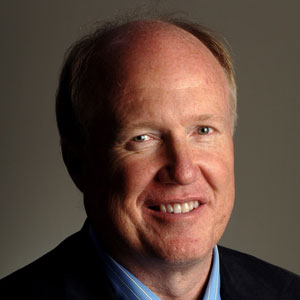
Professor, The Tom and Jean McMullin Chair of Genetics, Director of the Whole Systems Genomics Initiative, Molecular and Cellular Medicine, Texas A&M University
Candidacy Statement: The Genetics Society of America is the premier scientific organization that promotes training and research in genetics. Because of the importance of the GSA, I am interested in serving on the board to apply by experiences to assist the GSA in moving to a new level of visibility and impact. I have been active in the GSA by serving on the editorial boards for both GENETICS and G3, and the selection committee for the DeLill Nasser Awards for Professional Development in Genetics. I also led the 2011 meeting of the International Mammalian Genome Society that was co-organized with the GSA. Additionally, I am a past-president of the International Mammalian Genome Society, one of the founders of the Complex Trait Community, and have served on the Board of Directors for the Texas Genetics Society. My research lab uses the mouse as a model organism to study complex gene-environment interactions underlying human health and disease. I have graduated over 20 PhD students in genetics and provide research experiences for 15-25 undergraduate students each year in addition to teaching genetics courses to undergraduate and graduate students, both at my home institution and at partner under-represented minority-serving institutions. I believe these experiences provide me a unique perspective on how both to better engage the mouse genetics community in the GSA but also ideas to extend the reach of the GSA by linking with well-established regional organizations with similar goals to increase the impact and visibility of Genetics.
Education: BS, 1983, Texas A&M University, Zoology, PhD, 1989, Texas A&M University, Genetics
Career Summary: Post-doc, Case Western Reserve University, Genetics, Assistant Professor, Department of Cell Biology, Vanderbilt University, (1996-2000), Assistant, Associate, Professor, Department of Genetics, University of North Carolina, (2000-2008), Professor and Head, Department of Genetics, North Carolina State University, (2008-2013), Professor, Department of Veterinary Pathobiology and Department of Molecular and Cellular Medicine, Texas A&M University/Texas A&M University Health Science Center, (2013-2015), Tom and Jean McMullin Chair of Genetics, Texas A&M University Health Science Center, (2013-present), University Distinguished Professor, Department of Veterinary Pathobiology, Texas A&M University and Department of Molecular and Cellular Medicine, Texas A&M University Health Science Center, (2015-2018), University Distinguished Professor, Department of Molecular and Cellular Medicine and Department of Biochemistry & Biophysics, Texas A&M University, (2018-present), Founding Director, Texas A&M Institute for Genome Sciences and Society, (2014-present), Director, Texas A&M Center for Environmental Health Research, (2017-present)
Honors and Awards: Faculty Auxiliary Graduate Award, Texas A&M University School of Veterinary Medicine, (1987), Graduate Student Travel Award from The Genetics Society of America to attend the XVIth International Congress of Genetics, Toronto, Canada, (1988), Fellowship to attend the International Summer School on the Molecular Genetics of Differentiation. Berlin, Germany, (1989), Young Investigator Travel Award from HGM10 to attend the 10thInternational Workshop on Human Gene Mapping, New Haven, CT, (1989), Outstanding Graduate Award for Research, Texas A&M University, (1989), NIGMS Individual National Research Service Award, (1991-1993), March of Dimes Basil O’Conner Award. (1998), V Foundation Scholar Award, (1998), Jefferson Pilot Scholar Award, (2004), UNC-Lineberger Comprehensive Cancer Center Clinical/Translational Research Award, (2005), Society of Toxicology Best Manuscript Award from the Occupational and Public Health Specialty Section (American Journal of Physiology-Endocrinology and Metabolism 296:E203-210), (2009), Society of Toxicology award for Most Influential Paper Affecting the Science of Risk Assessment (Genome Research 19:1507-1515), (2010), National Institutes of Health College of CSR Reviewers, (2010-2012), Elected Fellow of the American Association for the Advancement of Science (AAAS), (2011), Outstanding Research Leader Award, Texas A&M University College of Veterinary Medicine & Biomedical Sciences, (2015), Barbara Bowman Distinguished Texas Geneticist Award, Texas Genetics Society, (2018), Toxicological Sciences Paper of the Year Award (Toxicological Sciences 158:48-62), (2019), Excellence in Mentorship and Support Award, TAMU Genetics Graduate Student Association, (2019)
Professional Service: Discipline: Tennessee Mouse Genome Consortium, Co-founder and Scientific Working Group, (1998-2000), NCI-Mouse Models of Human Cancer Consortium, Steering Committee, (1999-2014), NHGRI Advisory Panel on Mouse SNP Resources, (2002), NHGRI Advisory Panel on Genetic Variation, (2002), Complex Trait Consortium, Co-founder, (2002), International Mammalian Genome Society, Nomination and Election Committee (elected), (2003-2005), NIEHS Search Committee for Faculty position in the Laboratory of Respiratory Biology, External committee member, (2004), NCI Director’s Think Tank on Susceptibility and Resistance to Cancer, Chair, (2004), 18thInternational Mammalian Genome Meeting, Session Chair, (2004), Colon Cancer in Murine Models and Humans, Session Chair, (2004), NIEHS Advisory Panel on Multi-Strain Approaches for Toxicity Testing, (2005), AACR Annual Meeting, Member of the Animal Models and Other Model Organisms Subcommittee, (2005), Vanderbilt SPORE in GI Cancer, External Advisory Board, (2005-2013), NCI Radiation Carcinogenesis Workshop speaker, (2006), External Advisor to planning committee for Division of Quantitative Genetics, Cincinnati Children’s Hospital Research Foundation, (2006), Vanderbilt-ORNL Superfund Program, External Advisory Board, (2006-2008), NCI Think Tank on Mouse Models and Early Interventions, (2007), Centre for Modeling Human Disease, External Advisor, Toronto, Canada, (2007), Gordon Conference on Quantitative Genetics and Genomics, Session Chair, (2007), Keystone Symposia on Reproduction: Advances and Challenges, Session Chair, (2007), NHLBI Genes and the Environment Initiative Workshop speaker, (2007), International Mammalian Genome Society, Secretariat (elected), (2007-2008) (resigned to accept role of President-elect), Center for Integrative Genomics, University of Lausanne, Switzerland, External Advisor, (2008), NIEHS Search Committee for Chief of Host Susceptibility Branch, External committee member, (2008), International Mammalian Genome Society, President-elect (elected), (2008-2010), President, (2010-2012), Past-President, (2012-2014), Carolina Center for Computational Toxicology, External Advisory Board, (2009-2013), NIEHS Search Committee for Developmental Biologist, External committee member, (2009), International Committee on Standardized Genetic Nomenclature for Mice, member (elected), (2009-2014), AACR Think Tank on Clinical and Translational Cancer Research (Speaker), San Francisco, CA, (2010), Whole Systems Genomics Initiative, External Advisory Board, Texas A&M University, (2010-2013), NIH Center for Regenerative Medicine, Industry Interactions Workgroup (Speaker), (2012), Department of Molecular Virology, Immunology and Medical Genetics, External Departmental Reviewer (Chair), Ohio State University, (2012), National Consortium for Data Science, steering committee member, (2012), Moffitt Cancer Center SPORE in GI Cancer, External Advisory Board, (2012), National Academies of Science Emerging Science for Environmental Health Decisions Planning Workshop, Presenter, Washington DC, (2014), The Long Now Foundation Revive & Restore Genetic Rescue for Endangered and Extinct Species: New Genomic Solutions for Conservation Problems Workshop, San Francisco, CA, (2015), Peromyscus Genetics Stock Center External Advisory Board, University of South Carolina, Columbia, SC, (2015-present), Genetic Biocontrol of Invasive Rodents steering committee, (2016-present), Vanderbilt SPORE in GI Cancer, External Advisory Board, (2016-present), NCI Board of Scientific Counselors-Basic Research, (2016-present), ORNL-UT Governor’s Chair external review committee, (2017), Genetics Society of America, DeLill Nasser Award Selection Committee, (2017-2019), University of North Texas Health Science Center, Graduate School of Biomedical Sciences review committee, (2019) Institution: Genetics Task Force, Vanderbilt, (1998-2000), Institutional Animal Care and Use Committee, Vanderbilt, (1998-2000), Curriculum in Genetics and Molecular Biology, Graduate Admission Committee, UNC, (2000-2001), Microarray and Genomics Core, Faculty Scientific Co-Advisor, UNC, (2000-2005), Division of Laboratory Animal Medicine Advisory Committee, UNC, (2001-2008), Lineberger faculty search committee, UNC, (2002-2005), Curriculum in Genetics and Molecular Biology, Director of Admissions, UNC, (2003-2006), Marilyn Gentry Fellowship Program in Nutrition and Cancer selection committee, UNC, (2004-2006), Nutrition faculty search committee, UNC, (2004), Institutional Animal Care and Use Committee, UNC, (2004-2008), Biomedical Sciences Graduate Training Task Force, Committee Member, UNC, (2005-2006), Curriculum in Toxicology, Graduate Admissions Committee, UNC, (2005-2007), Lineberger Graduate Fellow Award committee, UNC, (2006-2008), Interdisciplinary Obesity Training Post-doctoral Fellowship selection committee, UNC, (2006-2008), Cancer Genetics faculty search committee chair, UNC, (2007), Lineberger Post-doctoral Fellowship selection committee, UNC, (2007-2008), College of Agriculture and Life Sciences research grant director search committee, NCSU, (2009), Health and Wellbeing University Advisory Committee, NCSU, (2009-2010), Implementation Team for the NC State Response to the UNC Vision for Technology Transfer, NCSU, (2009-2010), Sponsored Projects Management Administrative Processes Improvement Task Force member, NCSU, (2009-2010), College of Agriculture and Life Sciences Department Heads representative to Dean and Directors executive committee, NCSU, (2011), College of Agriculture and Life Sciences Academic Advisory Committee, NCSU, (2010-2011), University Strategic Planning Steering Committee member, and Research and Scholarship Task Force co-chair, NCSU, (2010-2011), College of Agriculture and Life Science 26thAnnual Graduate Student Professional Development Workshop, Faculty Organizer, NCSU, (2012), College of Sciences Academic Program, Personnel and Policy Implementation Team, NCSU, (2012), College of Sciences, Internal Organizational Steering Committee, NCSU, (2012-2013), College of Sciences, Laboratory Animal Resources Subcommittee for College of Sciences Infrastructure, NCSU, (2012-2013), College of Agriculture and Life Science 27thAnnual Graduate Student Professional Development Workshop, Faculty Organizer, NCSU, (2013), Interdisciplinary Faculty of Toxicology executive committee (elected), TAMU, (2014-present), Rodent Phenotyping Core, faculty supervisor, TAMU, (2014-present), Research Computing Task Force member, TAMU, (2014-2015), College of Medicine Research Advisory Committee, TAMU, (2014-present, Chair, 2018-2019), Department of Veterinary Pathobiology, Department Head search committee, TAMU, (2015), Health Science Center, College of Medicine Dean and VP HSC search committee, TAMU, (2015), Interdisciplinary Faculty of Genetics executive committee, TAMU, (2015-present), MD/PhD Program Executive Committee, College of Medicine, TAMU, (2016-present), Undergraduate Research Organization Council, TAMU, (2016-present), Council of Principal Investigators (elected to represent College of Veterinary Medicine & Biomedical Sciences), TAMU, (2016-2019), Council of Principal Investigators Executive Committee, TAMU, (2016-2017), Council of Principal Investigators, TAMU, President-elect (elected), (2017-2018, President, 2018-2019, Past-President, 2019-2020), Texas A&M Health Science Center, Associate Vice Chancellor for Research search committee co-chair, TAMU, (2017-2019), College of Medicine Faulty Pay Plan Design Committee, TAMU, (2017-2018), Faculty Advisory Task Force for President’s Large Projects Initiative, TAMU, (2017-2018), Present’s Excellence Fund Advisory Committee, TAMU, (2018-present), Distinguished Professor Selection Committee, TAMU, (2018-2019); Conference organizer: 5thAnnual Meeting of the Complex Trait Consortium (175 participants), Chapel Hill, NC, (2006), 20thAnnual Meeting of the International Mammalian Genome Society (230 participants), Charleston, SC, (2006), Colon Cancer in Murine Models and Humans III (125 participants), Bar Harbor, ME, (2010), Genetics Society of America Mouse Genetics 2011 (400 participants), Washington, DC, (2011), Texas Genetics Society (100 participants), College Station, TX, (2018), Annual Meeting of the International Mammalian Genome Society (200 participants), San Juan, Puerto Rico, (2018), Texas Genetics Society (100 participants), College Station, TX, (2019); Conference organizing committee: 1stAnnual Meeting of the Complex Trait Consortium, Memphis, TN, (2002), 3rdAnnual Meeting of the Complex Trait Consortium, Bar Harbor, ME, (2004), NCI workshop on the ‘Predictive Models of Cancer Susceptibility: Integrated Strategies’, Huntington Beach, CA, (2005), European Commission-NIH-Genome Canada Workshop on ‘The Future of Research on Mouse Functional Genomics’, Brussels, Belgium, (2007), 26thAnnual Meeting of the International Mammalian Genome Society (130 participants), St. Petersburg, FL, (2012), 12thAnnual Meeting of the Complex Trait Community (160 participants), Berlin, Germany, (2014), 15thAnnual Meeting of the Complex Trait Community (150 participants), Memphis, TN, (2017), Journal editorial boards: Cancer Prevention Research, (2008-present), Genetics Research, (2010-2013), Mammalian Genome, (2011-present), Associate editor: Genetics, (2009-2017), G3: Genes, Genomes, and Genetics, (2011-present); Manuscript reviews: Genomics; Mammalian Genome; Laboratory Animal Science; Cancer Research; Journal of Molecular Endocrinology; Cell Growth and Differentiation; Genetics; Molecular and General Genetics; Genome Biology; Genesis; Proceedings of the National Academy of Sciences; BioTechniques; ILAR Journal; Genome Research; Gastroenterology; Molecular and Cellular Biology; Circulation; Cytokine; Clinical Cancer Research; Brain Research; Journal of the American Society for Information Science and Technology; Nature Genetics; Alcoholism: Clinical and Experimental Research; Human Molecular Genetics; Trends in Genetics, Molecular Carcinogenesis; Physiological Genomics; Science; Nature; Nature Medicine; Aging Cell; Study sections and grant review panels:USDA Animal Molecular Genetics and Gene Mapping Panel, (1993), USDA Animal Molecular Genetics and Gene Mapping Panel, (1995), USDA Animal Molecular Genetics and Gene Mapping Panel, (1997), NIH Biological Sciences 1 Study Section (1 meeting), (1999), NIH International and Cooperative Projects Study Section (1 meeting), 1999, NIH Biological Sciences 1 Study Section (1 meeting), (2000), NIH Mammalian Genetics Study Section (1 meeting), (2001), NIH Biological Sciences 1 Study Section (1 meeting), (2001), NIH Special Emphasis Panel, Pre-clinical Cancer Therapeutics, (2002), DOD Molecular Biology and Genetics of Breast Cancer Review Panel (1 meeting), (2002), NIH Mammalian Genetics Study Section (1 meeting), (2002), DOD Molecular Biology and Genetics of Breast Cancer Review Panel, (2003), NIH Mammalian Genetics Study Section (1 meeting), (2003), DOE Oak Ridge National Laboratory Mouse Genetics Program, 2004, NIH Special Emphasis Panel, Resequencing the Mouse Genome, (2004), NIH Cancer Genetics Study Section (3 meetings), (2004), NIH Cancer Genetics Study Section (2 meetings), (2005), NCI SPORE in Breast Cancer (1 meeting), (2005), NIH Cancer Genetics Study Section, member, (2005-2008), Oak Ridge National Laboratory, Life Sciences Division Laboratory Directed Research and Development Review Panel, (2006), NIMH Special Emphasis Panel, Mouse Resources for the Nervous System, (2006), NHGRI Special Emphasis Panel, Genome Research Resources, (2006), NIMH Conte Center Program Review Panel (1 meeting), (2006), NCI SPORE Programs Study Section (1 meeting), (2007), NIEHS Special Emphasis Panel, Biological Response Indicators of Environmental Stress Centers, (2007), NIMH Conte Center Program Review Panel (Chair, 1 meeting), (2007), NIH Oncology Fellowship Study Section (2 meetings), (2008), NIH Oncology Fellowship Study Section (2 meetings), (2009), NIHShared Instrumentation: Microscopy and Imaging Study Section (1 meeting), (2009), NCI ARRA Grand Opportunities, Comparative Oncology, (2009), NCI ARRA Competitive Revisions, Basic and Translational Oncology, (2009), NIH Member Conflict Special Emphasis Panel (Chair, 1 meeting), (2010), NIH Oncology Fellowship Study Section (1 meeting), (2010), NIAAA Special Emphasis Panel, Genetics of Alcoholism, (2010), AACR Basic Cancer Research Fellowship Review Committee, 2010, NIH Genetics of Health and Disease Study Section (1 meeting), (2010), NIH Cancer Genetics Study Section (1 meeting), (2010), NCI Integrative Cancer and Microenvironment Study Section, (2011), Shriner’s Hospital Research Institute, (2011), NCI Cancer Biology Study Section, (2012), Shriner’s Hospital Research Institute, (2012), NCI Oncological Sciences Fellowship Study Section (Chair, 3 meetings), 2012, DOD Discovery Awards-Genetic Cancers Panel, 2012, DOD Discovery Awards-Colon Cancer Panel, 2012, Shriner’s Hospital Research Institute, 2013, NCI Special Emphasis Panel, Cancer Biology (3 meetings), 2014, NIEHS Special Emphasis Panel, The Role of Environmental Exposures in the Development of Autoimmune Disease, 2014, NCI Oncological Sciences Fellowship Study Section, 2014, Shriner’s Hospital Research Institute, 2014, NIDCR Special Emphasis Panel, Targeting Co-Dependent Molecular Pathways in Oral Cancer, 2014, NCI Special Emphasis Panel, Cancer Biology, 2015, Shriner’s Hospital Research Institute, 2015, NCI Special Emphasis Panel, Cancer Biology (2 meetings), 2016, NICHD Special Emphasis Panel, Gynecologic Health and Disease, 2016; Program site visits/reviews: NCI Program Project Grant site visit (3 sites), (2002), NCI Intramural Mouse Cancer Genetics Program, (2003), NCI Program Project Grant site visit (3 sites), (2003), NIEHS Mouse Comparative Genomics Program, (2004), NCI Program Project Grant site visit (2 sites), (2004), NIEHS Center Program site visit (1 site), (2005), NIEHS National Toxicology Program, (2009), NCI Intramural Genetics Branch, (2017); Ad hoc grant reviews: USDA Animal Molecular Genetics and Gene Mapping; USDA Sustaining Animal Health and Well-Being; NSF Eukaryotic Genetics; Alberta Innovation and Science; US Department of Energy; Vanderbilt University Discovery Grant Program; NIH Immunological Sciences Study Section; Vanderbilt GI SPORE; Vanderbilt Diabetes Center; Wellcome Trust; Oak Ridge Associated Universities; Bankhead-Coley Cancer Research Program; Pennsylvania Cancer Research Program Performance Review; Research Grants Council of Hong Kong; L’Agence Nationale de la Recherche, France; Medical Research Council Grants Program, UK
Website: https://genomics.tamu.edu/member/dr-david-threadgill/

